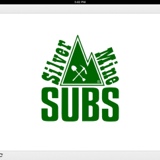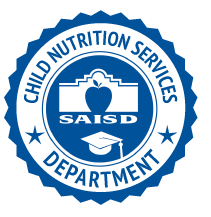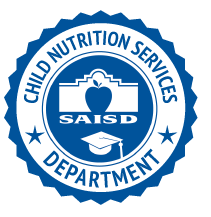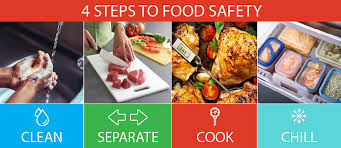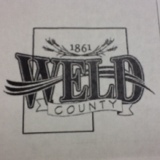Information
-
Document No.
-
Audit Title
-
Client / Site
-
Conducted on
-
Prepared by
-
Location
-
Personnel
-
A yes response to all items will help ensure a positive inspection. **DENOTES CRITICAL ITEMS
Personal Hygiene
-
**Are employees eating, drinking, and smoking away from food preparation and dishwashing areas?
-
**Are food handlers washing hands routinely and at correct times?
-
Are employees changing gloves regularly and as needed?
-
**Are employees with illnesses, cuts, and infections, restricted from handling food and cleaning dishes and utensils?
-
**Employees are NOT wearing jewelry on their hands, wrist, or forearms. (Involved in food preparation)?
Food Preparation
-
**Is potentially hazardous food held below 41 F? Or above 130 F?
-
Are all fruits and vegetables rinsed under running water in a colander, prior to service or prep?
-
**Is potentially hazardous food cooled uncovered from 135 F to 70 F within 2 hours and from 70 F to 41 F within 4 hours, under refrigeration in shallow trays, or in a ice bath?
-
**Is potentially hazardous food rapidly reheated to 165 F, before being placed into hot holding units?
-
**Is a metal-stemmed food probe thermometer with a range of 0 F to 220 F, provided and used to monitor food temperatures?
-
Is a thin-tip thermometer available to temp thin meats?
-
**Is raw meat that is waiting processing, prevented from being held at room temperature for long periods of time?
-
**Are cutting boards that are used to prepare raw meats, cleaned and sanitized before being used to prepare ready-to-eat foods?
-
Is potentially hazardous food properly thawed: under running water, under refrigeration, or as part of the cooking process
-
Are food preparation sinks cleaned and sanitized, before use?
-
Are kitchen wiping clothes stored in a sanitizing solution between uses?
-
Are utensil handles stored out of the food product?
-
**Are minimum internal temperatures being met and checked frequently?
Refrigerated Storage
-
**Are all refrigeration units at 41 F or below?
-
Is raw meat stored below other food?
-
Are thermometers conspicuously placed in the warmest part of the cooling units? (I.e. near the door)
-
Is food covered after the cooling process?
-
Are freezers at 0 F or below?
-
Is food stored out from under unprotected condensation/sewer lines?
Dry Storage
-
**There is no evidence of pest or rodents?
-
**Is food stored separate from personal items, cleaning and maintenance supplies?
-
Is all food and single-service items stored at least 6 inches off the floor?
-
**Are dented cans separated for return or disposed of?
-
Are food storage shelves clean and in good repair?
Utensil Washing
-
**Are utensils washed in hot soapy water, rinsed in clear hot water, and sanitized for one minute with a 50-200 ppm chlorine, or a 150-400 ppm quaternary ammonium solution?
-
Do hot water sanitizing machines have a final rinse of 180 F?
-
** Do chemical sanitizing machines provide 50-200 ppm chlorine?
-
Is tableware pre-soaked before washing?
-
Are all utensils air dried and stored properly?
-
Are test kits provided and used daily or more frequently, for monitoring the concentration of sanitizers?
-
Is the wash, rinse, and sanitizer water kept clean?
General Cleaning
-
Are food contact surfaces cleaned and sanitized after each use?
-
Are gaskets and interiors of refrigerators free of debris?
-
Are the slicer and can opener blades free of food debris and metal shavings?
-
Are walls and ceilings clean, painted, and free of holes?
-
Are floors in good repair and free of dirt, moisture, and food debris?
-
Are outside garbage container lids closed?
-
Is the receiving and garbage storage area clean?
Miscellaneous
-
**Are all hand sinks easily accessible for washing hands?
-
**Are all hand sinks equipped with soap and single-use towel dispensers?
-
**Do all hand sinks have hot and cold running water available for washing hands?
-
Are all the plumbing fixtures in the facility working properly, without leaking?
-
**Are toxic chemicals labeled correctly and stored from food, equipment, and utensils?
-
Are dining area wiping clothes stored in a sanitizing solution between uses?
-
Are clean linens stored on clean, dry surfaces?
-
Are all lights in kitchen areas shielded or have shatter-proof bulbs?
-
**Are all food prep and dishwashing sinks indirectly drained, to provide an air gap to prevent back flow?
-
Are all freezers and refrigeration units commercial grade?
-
**Is bare hand contact prevented through the use of gloves, utensils, deli tissues, etc.?
